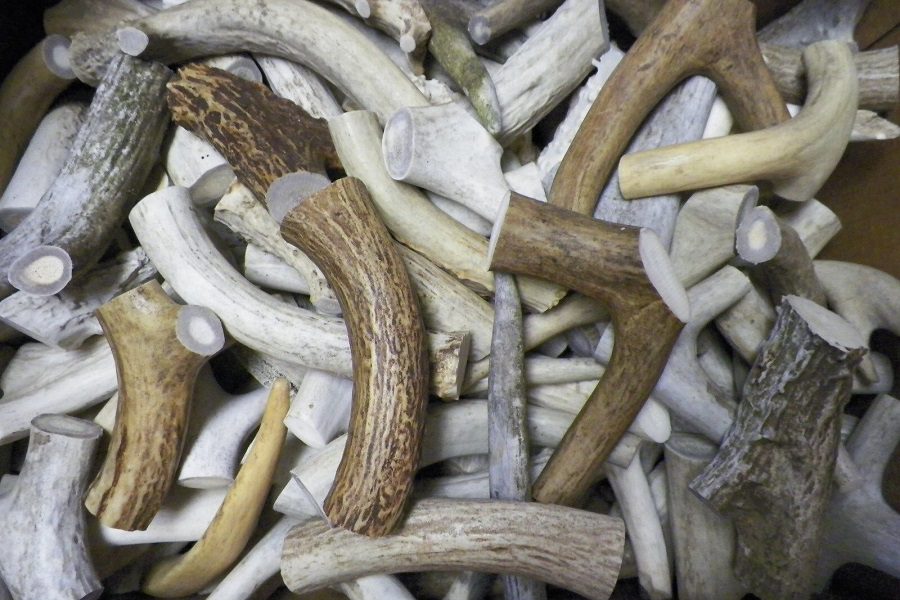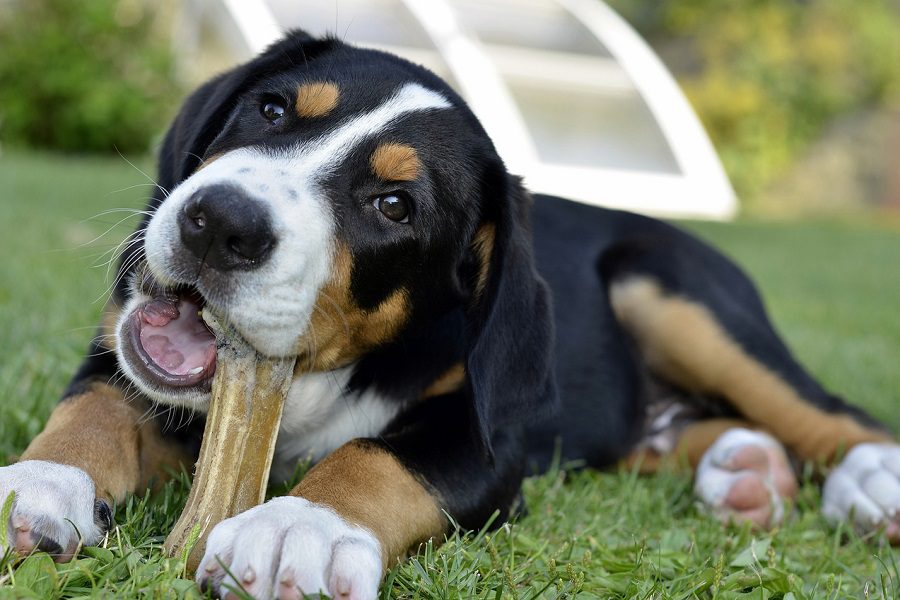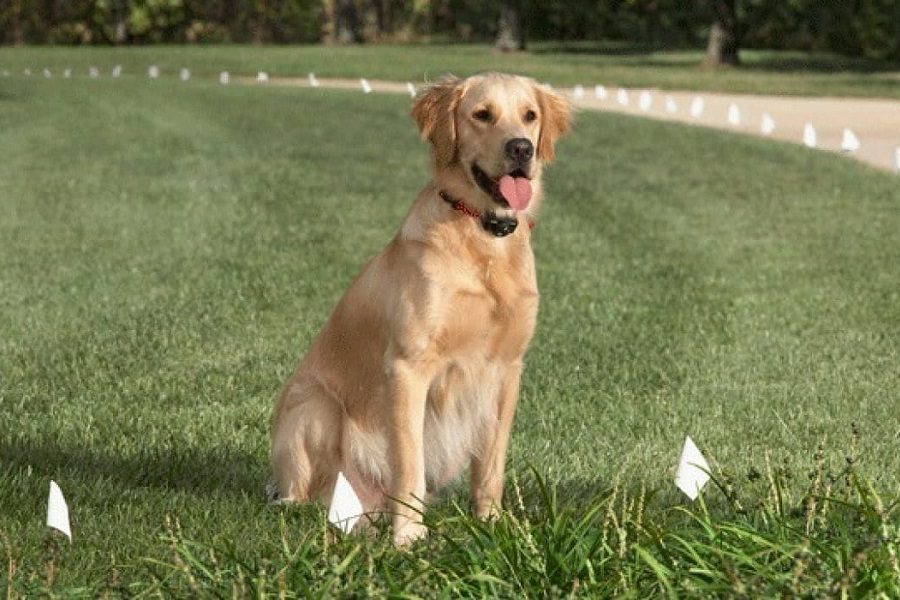Last Updated: 2 years ago
Taking care of a 6-week old puppy is both a challenge and a delight. You’ll have many rewards but you’ll have your frustrations too.
Use this guide to make 6 week old puppy care as easy – and rewarding – as possible.
New Puppy Checklist
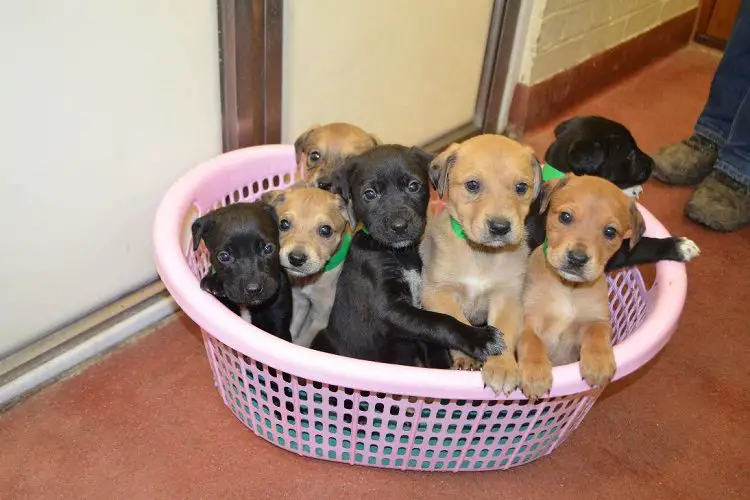
Before you do anything else make sure you have the right supplies on hand for your new puppy.
- Dog Crate – A crate that includes a divider panel will save you money. The divider panel will allow you to adjust the length of the living area while your puppy grows.
- Dog Gate – Using a dog gate will allow you to make a safe area for your puppy.
- Puppy Food – Dog food made for puppies is specially formulated to meet a growing puppies nutrient needs.
- Treats For Training – Healthy treats make training easier.
- Leash – Selecting a leash is mostly based on preference and budget. A 4-6 foot lightweight nylon or leather leash would work fine. A reflective fabric for evening walks is a nice option to consider.
- Collar – For a young puppy, you may want to start with a lightweight standard flat collar. It is most commonly made of leather or nylon. A harness is another option which fits on the dog’s chest and clips on the back. Its popular with small breeds.
- Puppy shampoo – Use a shampoo specifically formulated for a dog or puppy. Some popular options are Burt Bees for Puppies and Crazy Dog Baby Dog shampoo.
- Food and water bowls -There are a variety of different types of bowls for your puppy. It really depends on your preference.
- Quality Nail Trimmer – A high quality, safe dog nail clipper is all you need to keep your puppy’s nail properly trimmed.
- Waste bags. Poop bags are convenient to use when you take your puppy for a walk.
- Dog Brush. Look for a brush with soft bristles for your pet’s sensitive skin.
Create a Comfortable Environment for Your Pooch
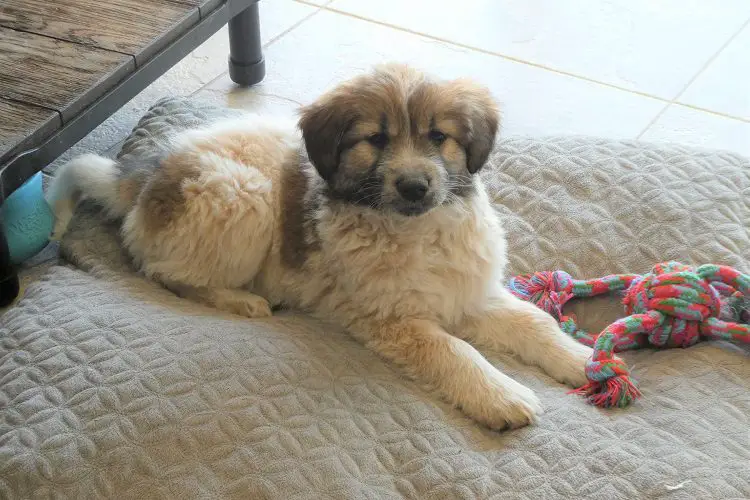
Your new puppy needs time to get comfortable with their surroundings so it’s up to you to create a safe, secure environment. Puppies often need a break from the attention they’re sure to get, to create an area they can call their own.
Start with a safe spot that’s guarded by some kind of boundary. This could be their crate, part of a room, or a room to themselves. This helps establish boundaries regarding areas that are okay for your pooch and what’s off limits.
Remember, 6-week old puppies have delicate bodies and can be easily hurt. Clear away or move anything that could hurt your pup in your home.
Consistency- Make Sure Everyone is on the Same Page
If you live in a home with other people then it’s important to set guidelines on puppy care and make sure that everyone follows them.
If you don’t, then your puppy will get inconsistent messages and won’t be sure what is right and whats wrong.
Feeding Your Puppy
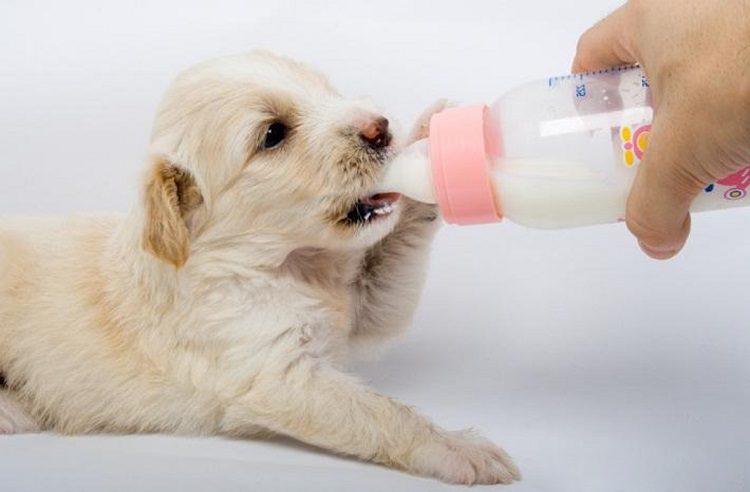
Food that’s made specifically for puppies is ideal because it is formulated for their essential needs. Puppies need more calories per pound than adult dogs.
Plus, their nutrient needs are different than adult dogs. If you interested in learning more about the best food for your puppy just click here to read our guide on puppy food.
Quality puppy foods should list meat or protein as the primary ingredient (not corn). You’ll also want to find a food that includes vegetables, fruit, and added vitamin and minerals.
Puppy breeds are all very different. The pitbull puppy may need a different type of food than the tiny Chihuahua. Your veterinarian will be the best person to talk to about your puppy’s nutrition.
Start the Training Process
For the first few days your puppy is in your home, you’ll want to supervise them often. Ideally, bring them home on a day when you can help them get used to their new environment.
Puppies generally respond best to training when there’s an element of play involved as well as treats. Whatever method you choose, it’s important to be patient and to train them gradually.
Remember that your puppy is similar to a child, they have a very short attention span. Training is best accomplished when its done often but in short sessions.
The Right Way to Potty Train a 6 Week Old Puppy
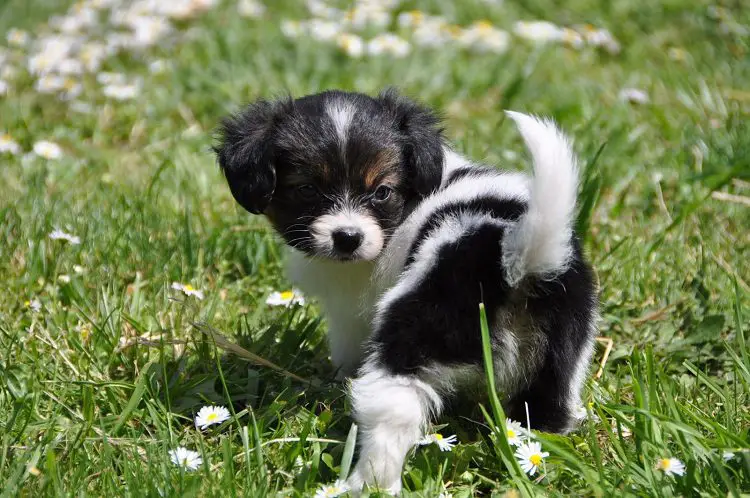
Some people wait until a puppy is older to start potty training but you don’t want your puppy to ever be comfortable releasing themselves wherever they want. Start early!
- Start potty training by placing them in a crate for an hour. The crate can’t be too big or your puppy will sleep on one side and use the other side to relieve himself.
- Then, take them to their potty zone. This can be outside in the grass, on potty pads, or in an indoor litter box for dogs.
- Lure your pup with treats and reward him for entering the potty zone.
- The use of a potty cue such as “Hurry Up” or “Go Potty,” can also help you tell him what you would like. Give him time to do his business.
- If your puppy is successful, praise her energetically both vocally and with rewards like treats and play.
If you stick with a routine and have a good reward system, puppies are generally fairly easy to potty train.
Socializing Your Puppy
In addition to teaching your puppy how to behave at home, you also need to train them to behave and socialize with a wide range of people and animals.
The AKC states that the period from 2-to-12 weeks is crucial. Puppies need to be exposed to various people, experiences, and even noises during this time.
If not, then they will have a harder time adjusting to new experiences later on. A lack of socialization can be serious and can even lead a dog to become dangerous.
The best rule of thumb is that by three months your puppy should have met numerous people and exposed to many situations.
Start by inviting people over or throw a “pooch party”. When you expose your pup to people, places, and experiences it can prevent a dog from being fearful and help him develop into a well-mannered, happy companion.
That said, socialization shouldn’t just take place with familiar faces. Your pooch should also be regularly taken on walks so they can get comfortable with strange people and other dogs. Puppy behavior classes can also be very beneficial.
Teach Your Pooch to be Left Home Alone
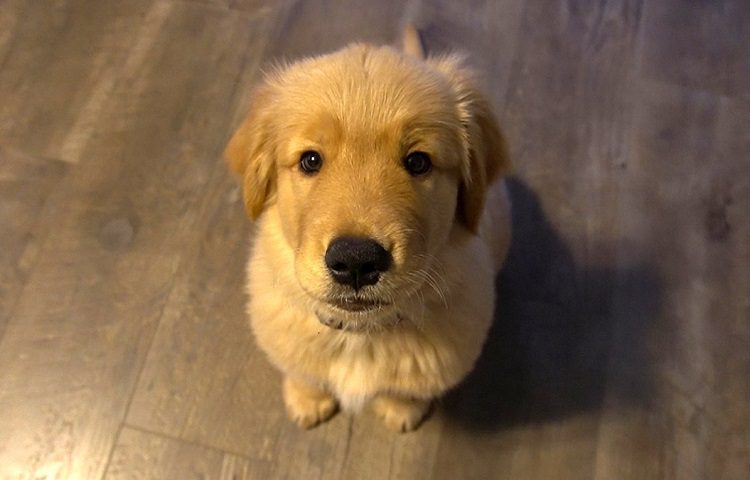
No matter how much time you spend at home, at some point, your pooch will need to be left alone. If your puppy isn’t comfortable alone, she may behave improperly by chewing on things, having accidents in the house, and barking or whining excessively.
If your 6-week old puppy initially suffers from separation anxiety try to be patient. With the right training, they’ll behave whether you’re home or not.
Dogs are extremely social animals, so being left alone can be stressful. There are several steps you can take to ensure your pooch is comfortable when you’re not home.
- Set up a confinement area. An exercise pen or using gates to make a small area is great for this purpose. Dogs are view this area as a place to relax.
- Add a dog bed in this area. A comfortable dog bed will give your pup a place to rest and relax.
- Supply food and water. In order to associate this area with pleasure, provide food and water inside this safe place.
- Provide a doggy toilet. Puppy pads or doggy toilets give them an approved place to relieve themselves when necessary. Since they are young six-week-old puppies, they will have to relieve themselves often especially if they are confined for a long period of time.
- Leave plenty of approved chew toys. Give your puppy something constructive to do whenever he’s confined or he will get in trouble. A perfect way to pass the time is chewing on a durable chew toy. Some popular toys are a Kong filled with food or a Nylabone.
Summary
Owning a dog is a lifelong commitment with a variety of responsibilities. As long as you can meet these responsibilities, you and your new puppy will be happy.
Accidents will happen before training is complete. Your six-week-old puppy may chew your favorite shoes or keep you up in the middle of the night barking. Puppies will do these things.
With patience, consistent training, and lots of love, you will be ready to be a great pet parent!

